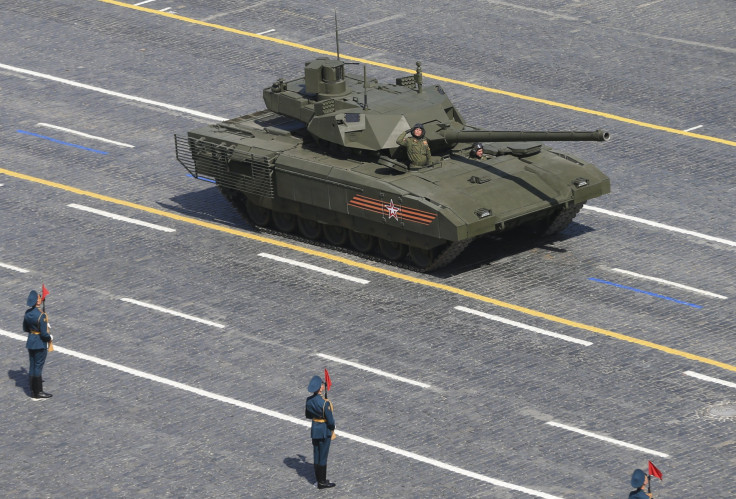Russia's Armata T-14 Tank To Feature Ceramic Armor Plates, Report Says

A Russian manufacturing company has begun production on ceramic armor plates for use on Russia’s new Armata T-14 tank, a report said Friday. The Kremlin unveiled the tank last month at its commemorative World War II Victory Day parade in Moscow and has repeatedly touted its capabilities in recent months.
“Ceramic armor testing has been completed this year. All expected properties have been confirmed. Batch production has begun,” Russian manufacturer NEVZ-Ceramics’ chief Andrey Nikitin told the Russian news agency TASS. Armor that uses a combination of steel and ceramic plating is much lighter and 50 percent stronger than traditional armor composed of steel alone, he added.
Russian officials have been vocal in recent months about the Armata T-14’s versatility and combat potential. Several nations, including China and India, purportedly expressed interest in purchasing the advanced tank, although it’s unclear if Russia will permit its sale.
In addition to a powerful 125-millimeter cannon and 7.62-millimeter machine gun, the Armata T-14 tank will possess an automated gun turret with a built-in manual override in case of equipment malfunction, officials said in May. Protective barriers will shield the three-men crews required to operate the tank from explosive materials like fuel and ammunition, while a warning system will alert them of potential mechanical issues.
While some Armata T-14 tanks have already been built, full-scale production was slated to begin in 2020, the BBC reported. Thousands of the new tanks will replace older models as part of Russian President Vladimir Putin’s vow to overhaul the Russian military. The Armata T-14 made its debut during Moscow’s Victory Day parade to celebrate the 70th anniversary of Russia’s victory over Nazi Germany, but at least one of the prototypes broke down during rehearsals, various reports said.
Western nations have expressed growing alarm in recent months over Russia’s increased emphasis on military production and training. Both the European Union and NATO have accused Russia of participating in the eastern Ukraine conflict that has killed more than 6,400 people since last year, but the Kremlin has denied the accusations and said any Russian nationals active in the region are there of their own accord.
© Copyright IBTimes 2024. All rights reserved.






















